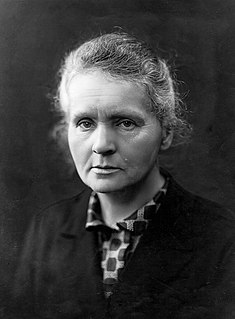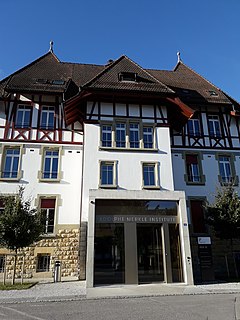This article includes a list of references, related reading or external links, but its sources remain unclear because it lacks inline citations .(November 2018) (Learn how and when to remove this template message) |
The Marie Curie Fellows Association (MCFA) is the association of scientists who have been awarded a Marie Curie fellowship or other research training grants from the European Commission within the Marie Curie Actions programme (FP6), the People programme (FP7), or the Marie Skłodowska-Curie Actions programme (Horizon 2020). A Marie (Skłodowska) Curie Fellowship is a grant under one of the European RTD framework programmes to stimulate the training and mobility of researchers within the European Union.

The European Commission (EC) is an institution of the European Union, responsible for proposing legislation, implementing decisions, upholding the EU treaties and managing the day-to-day business of the EU. Commissioners swear an oath at the European Court of Justice in Luxembourg City, pledging to respect the treaties and to be completely independent in carrying out their duties during their mandate. Unlike in the Council of the European Union, where members are directly and indirectly elected, and the European Parliament, where members are directly elected, the Commissioners are proposed by the Council of the European Union, on the basis of suggestions made by the national governments, and then appointed by the European Council after the approval of the European Parliament.
Marie Skłodowska-Curie Actions (MSCA) are a set of major mobility research grants created by the European Union/European Commission to support research in the European Research Area (ERA). Established in 1996 as Marie Curie Actions and known since 2014 as Marie Skłodowska-Curie Actions, the fellowship programme aims to foster the career development and further training of researchers at all career stages. These grants promote interdisciplinary research and international collaborations, supporting scientists from not only within Europe but also across the globe. MSCA fellowships are among Europe’s most competitive and prestigious awards, aimed at supporting the best and most promising scientists.
The Framework Programmes for Research and Technological Development, also called Framework Programmes or abbreviated FP1 to FP7 with "FP8" being named "Horizon 2020", are funding programmes created by the European Union/European Commission to support and foster research in the European Research Area (ERA). The specific objectives and actions vary between funding periods. In FP6 and FP7 focus was still in technological research, in Horizon 2020 the focus is in innovation, delivering economic growth faster and delivering solutions to end users that are often governmental agencies.








